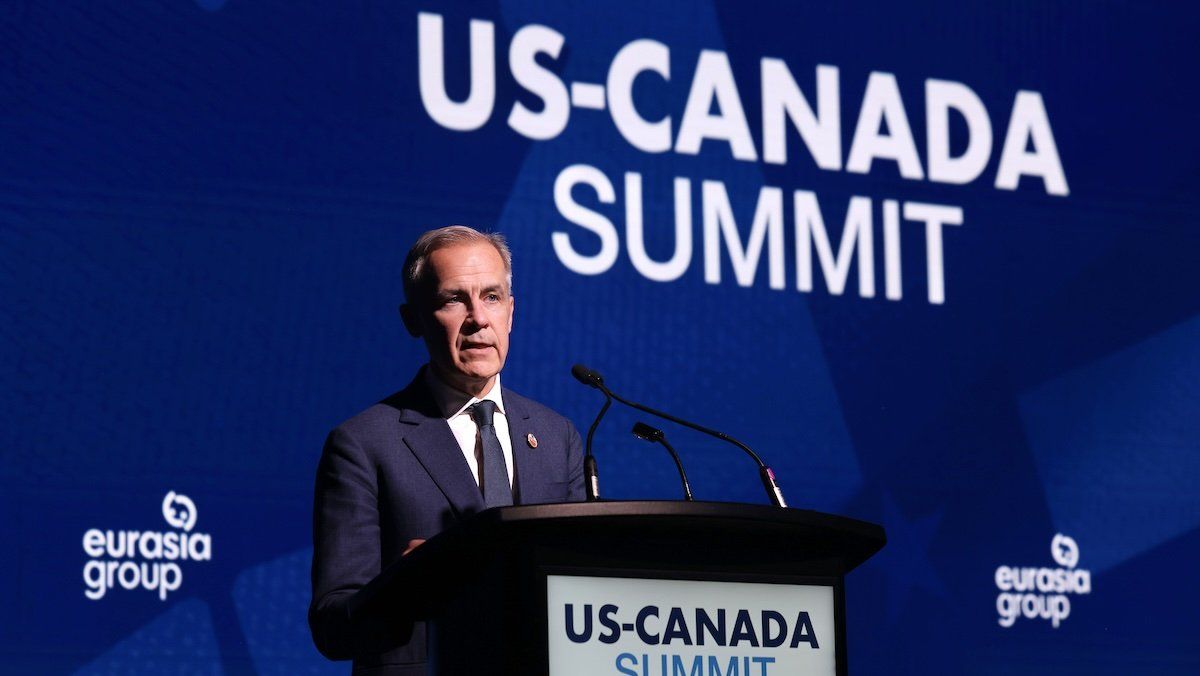June 13, 2024
The US-Canada Summit in Toronto this week hosted by Eurasia Group and BMO included politicians and business and thought leaders from both countries. Here’s what some of them had to say on key issues:
US Sen. Chris Coons on the border: “These days the largest population crossing the northern border are Indian … One of the things we believe is that a substantial share of those are occurring through fraud. People have fraudulent papers That is something that Canada and the United States and our border agencies can work together on.”
David Axelrod on the next election: “The danger for Trump’s campaign is not the campaign or the message, it’s Trump himself.”
CEO Greg Ebel talking about energy policy: “The only way that CO2 will get from where it is produced to where it will be stored is through a pipeline.”
Alaska Gov. Mike Dunleavy on the benefits of Indigenous engagement in energy production: “In Alaska, life expectancy has increased 14 years in areas where resource development is happening, the largest increase in the world in a short period of time.”
Canadian Treasury Board Minister Anita Anand on Canada’s NATO contribution: “There’s a lot of discussion about the 2% target. Every single day, we are working on the ground with Americans on our joint peace and security and we will continue to increase our defense spending.”
Mark Carney: “If we’re not at the table, we’re on the menu.”
More For You
Of all the threats to the world, what are the top 10 most urgent global risks for 2026? On Monday, January 5, at 12 pm ET, join us for a livestream discussion with Ian Bremmer and global experts to discuss the Top Risks of 2025 report from Eurasia Group. This report will mark twenty years of Ian Bremmer’s annual forecast of the political risks that are most likely to play out over the year. Event link: gzeromedia.com/toprisks
Most Popular
- YouTube
Wikipedia cofounder Jimmy Wales explains why a specific page titled “The Gaza Genocide” risks undermining trust with users.
- YouTube
In his latest Quick Take, Ian Bremmer explains a major shift in the Ukraine war: Europe, not the United States, is now driving the strategy.
Chief Superintendent of the police force's National Security Department Steve Li Kwai-wah speaks at the West Kowloon Magistrates' Courts building after the verdict in the national security collusion trial of Jimmy Lai, founder of the now-defunct pro-democracy newspaper Apple Daily, in Hong Kong, China, on December 15, 2025.
REUTERS/Lam Yik
© 2025 GZERO Media. All Rights Reserved | A Eurasia Group media company.
